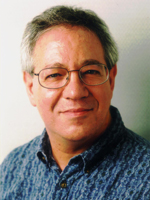
Northwestern University professor Brian Riser will lead the presentation Monday, March 14 from 9 a.m. to 11 a.m. in the Student Union Berry Room.
Science classes have long been built on memorizing facts. And there are a staggering amount—facts on everything from the solar system to geology to anatomy to plant life to microorganisms.
This memorization teaching model can result in a wide range of knowledge, but little depth, retention or true understanding of science.
As a result, educators have developed a new framework they hope will soon find its way into classrooms from elementary school through high school.
Brian Reiser, professor of learning sciences at Northwestern University’s School of Education and Social Policy, will discuss this new framework at Wright State University on Wednesday, March 14. The Next Generation Science Standards presentation is directed at teachers, administrators and curriculum specialists.
“If you think about how we teach, we teach a lot of facts, memorization,” said Lisa Kenyon, associate professor in Wright State’s Department of Biology and Teacher Education. “But there are a lot of other ways we want students to learn–not just by memorizing content, but understanding it, explaining it, arguing it in the classroom, really participating in science as they think through the ideas.”
The new framework includes practices and concepts for students that involve defining problems, carrying out investigations, analyzing data, engaging in argument from evidence and looking at cause and effect. It is to be used in the teaching of physical sciences, life sciences, earth/space sciences and engineering/technology.
“It’s not just the ‘what’ anymore,” Kenyon said. “Kids are going to know more about a concept. It’s not going to be superficial learning.”
Reiser is a member of the panel that wrote the National Research Council 2007 report Taking Science to School, presenting research-based recommendations for improving science education K-12. He is also a member of the team that developed the National Research Council 2011 Framework for New Science Education Standards, which is being used to craft the design of new K-12 science standards being developed by 26 states, including Ohio.
The March 14 event is sponsored by Wright State and Sangari Active Science. It will be held from 9 to 11 a.m. in the Berry Room at the Wright State Nutter Center. It is free and open to the public.
“It’s important for the public to understand more about how we want kids to think and learn,” Kenyon said. “This is the way we should be thinking about teaching kids, especially if we want them to succeed in society. They’ll be more prepared when they come to college.”
RSVP: Please respond by March 9 to Lisa Kenyon at (937) 775-2435 or lisa.kenyon@wright.edu

 Adventures await
Adventures await  Wright State to expand nursing facilities to meet workforce needs and prepare more graduates for in-demand careers
Wright State to expand nursing facilities to meet workforce needs and prepare more graduates for in-demand careers  Wright State student-athletes make a lasting impact on local family with more to come
Wright State student-athletes make a lasting impact on local family with more to come  Wright State names Rajneesh Suri dean of Raj Soin College of Business
Wright State names Rajneesh Suri dean of Raj Soin College of Business  ‘Only in New York,’ born at Wright State
‘Only in New York,’ born at Wright State 